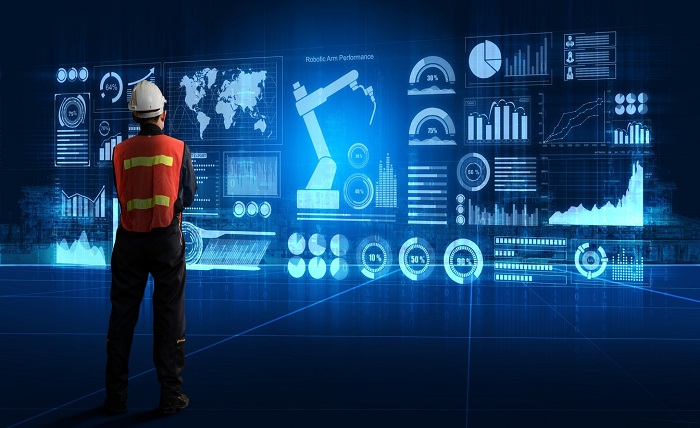In the near and distant future, we will look back and divide our history into pre- and post-AI. The impact of this new technology will be so universally felt that its widespread usage is going to be the defining feature of the next stage of our technological and societal evolution.
The incessant urges to swiftly adopt AI into business practices feel–and often are–hyperbolic. But it’s clear that using this new technology is going to be a major element in distinguishing market leaders, as U.S. News has reported on the impact of AI as a service.
We have already taken a deep-dive into how AI is revolutionizing SEO and content creation. Read on for a look at the industries already being disrupted by AI.
Retail
Retail success is often based on the ability to manage profit margins effectively. It’s not just about how much your customers are willing to spend, it’s about how much you can save while keeping customers happy.
AI’s ability to effectively answer questions and its increasing ability to understand the semantic meaning of a customer’s query makes it a powerful customer service tool.
Instead of employing an army of reps to trawl through company policy and shipping records to help valued customers, AI allows retailers to do this lightning-fast while maintaining a friendly tone.
This is already being used by many major companies including Amazon, Starbucks, and beauty retailer Sephora.
Financial Services
Investing wisely comes down to understanding what vast amounts of impenetrable data means in a real-world context.
This has been such a lucrative industry precisely because making sense of the information is something few of us are inclined or even able to do, though the financial upshot can be huge.
It all comes down to effective decision-making, and that’s where AI is able to supercharge the industry. As MongoDB’s guide to artificial intelligence (AI) states, artificial intelligence is a machine’s ability to rationalize, problem solve, and make decisions without human supervision.
AI can make risk management assessments quickly and accurately and explain what these analyses mean in terms everyone can understand.
That might seem to spell the end for the financial services industry, making it easy for individuals to do it themselves, but FinTech Magazine reports economic analysis leaders Moody’s are using generative AI to attract new clients.
Education
Education is most effective when students get advice specific to their learning. That’s why wealthy private institutions often get the best grades – they can afford more teachers.
AI is already changing this.
Duolingo uses AI to provide feedback specific to the language student, so they don’t keep making the same mistake.
There are also many homework helpers out there designed for the toughest subjects. Check out our overview of biology study assistants here.
Supply chain logistics
The market leaders in logistics are the companies that get the right things to the right people at the right time.
But that’s easier said than done.
Identifying who needs what and when is tricky. If you wait for people to tell you what they need you’re too late. A recent paper in the Georgetown Journal of International Affairs explains how AI can add value to supply changes by predicting this with terrific accuracy.
Even once you’ve worked this out, getting supplies to the right place is its own challenge. AI can help with this too, quickly calculating the quickest most cost-effective route.
Healthcare
AI is revolutionizing healthcare in many ways already.
With the aid of retrieval-augmented generation LLM can give users answers to queries based on the very latest medical research. This means many more people are using the best possible treatments.
But it is also able to give guidance that is specific to the patient. One of the great pitfalls of internet use when it comes to self-diagnosis is that any keyword search is likely to miss important contextual information, meaning answers may not be accurate for the individual at all.

